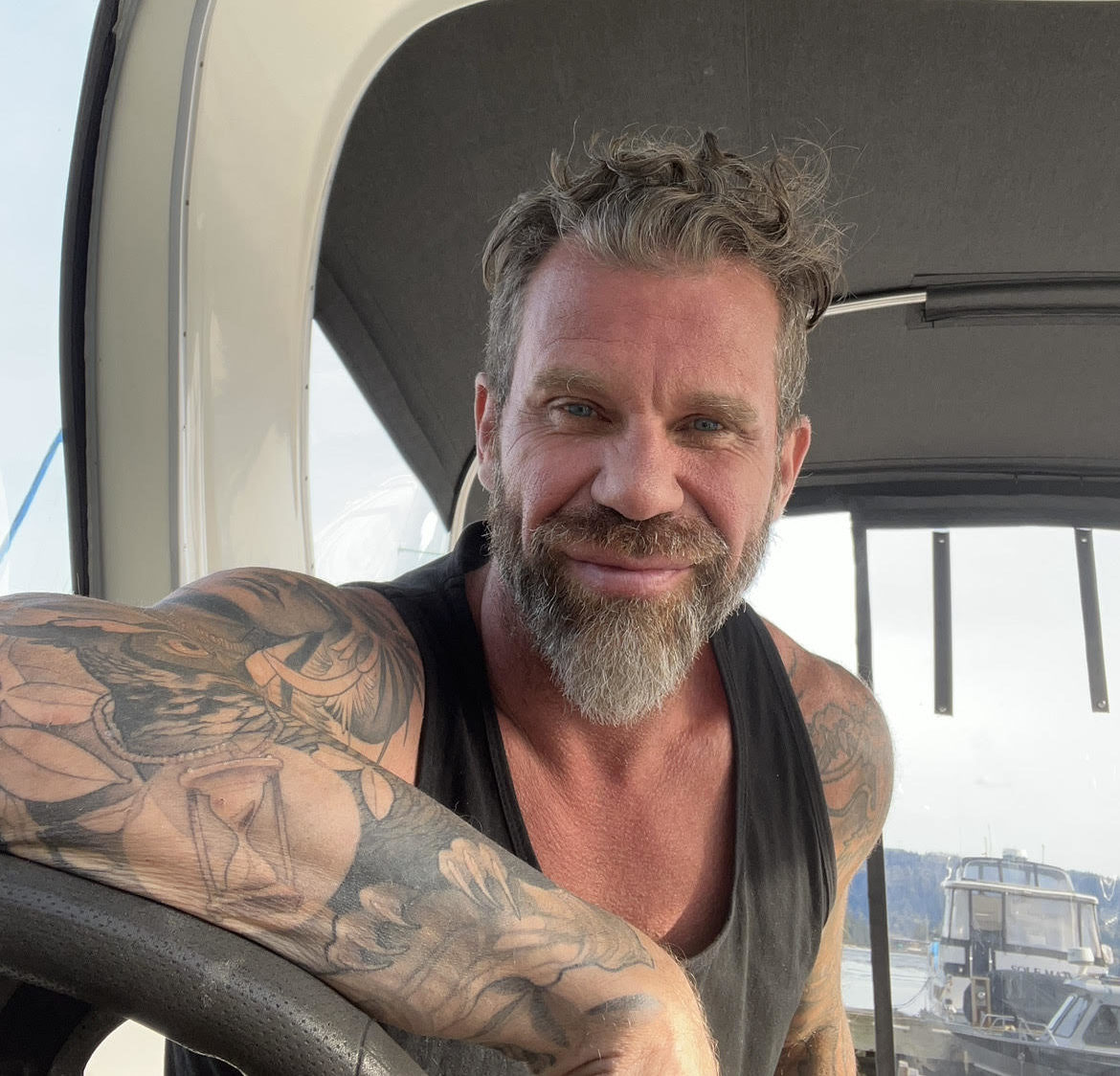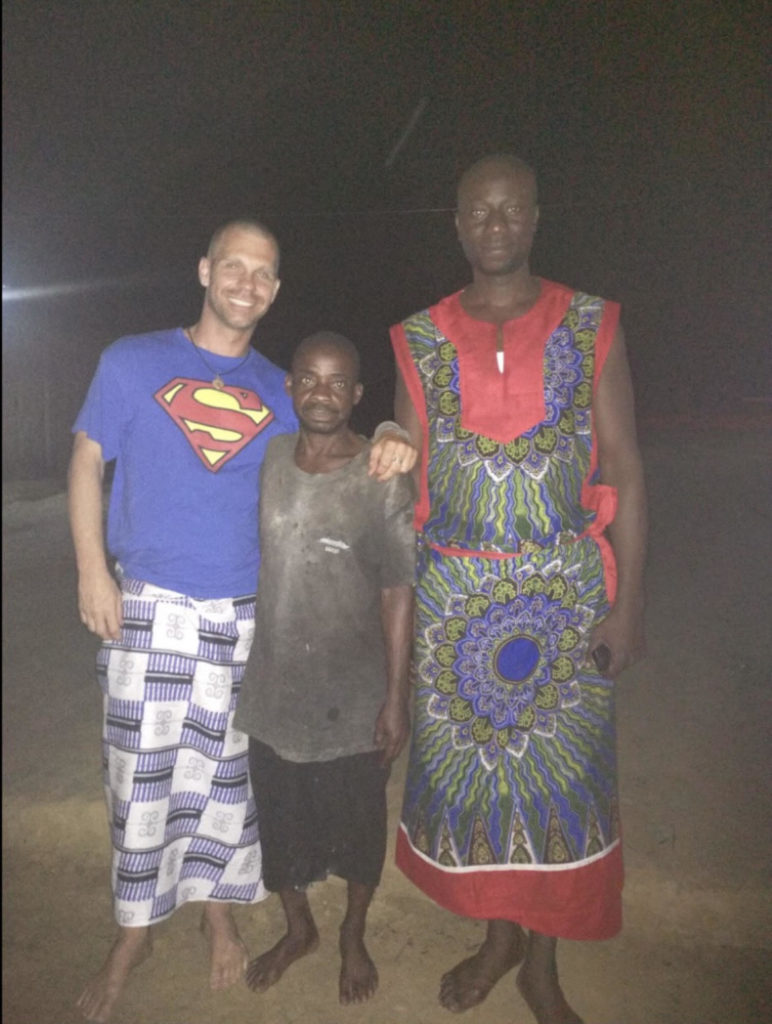How Plant Medicines and Psychedelic Therapies Can Lead to Healing with Corey Gauthier

June 23, 2022
more about me
Welcome back for the follow-up to episode 70 and the conclusion of my interview with Corey Gauthier.
In our last episode, Corey discussed his journey into plant medicines and psychedelic therapies after realizing that his “live fast, die young” lifestyle had some deep-rooted trauma. For those who missed it, I strongly encourage you to check it out first!
Today, we’re going to continue along on our journey with him.
Here are three reasons why you should listen to the full episode:
- Listen to Corey’s personal experience with an African Rites of Passage ceremony, as well as the incredible story that gave me goosebumps.
- Discover why the Sacred Soul Center closed its doors.
- Hear Corey’s recommendations for plant medicine clinics.
Episode Highlights
Corey’s trip to Africa
- The Shaman, Corey, his partner, and many other providers Corey had trained with in Costa Rica moved back to Africa shortly after the Center opened.
- They all traveled to Africa, and Corey and his partner donated money so the Shaman could build a new temple for them when they arrived.
The ceremonies
- Corey went through the Rites of Passage ceremony, which transitioned people from boyhood to manhood.
- There were 13 Western men and 13 or 14 Africans thrown into the temple together.

The customs and traditions
- Those who have gone through these experiences should not talk much about them.
- Corey could only say that there were physical beatings, starvation, lack of sleep, and a lot of “mind stuff.”
- The men were all covered in palm oil and had their heads shaved bald.
Meeting an African God
- During this ceremony, the men met this African God but couldn’t see him because they put this medicine in their eyes that blinded them for about five or six minutes.
- They were all cut very deeply into their arms, leaving scars for the rest of their lives.
More about the ceremonies
- Corey says when you live in the African jungle, you must be tough, so they do this twice, once at the age of six and again at the age of 12.
- The whole point was to break your mindset that fear exists.
The story that gave me goosebumps
- Following the celebration, Corey tells the story of the big lesson he learned that led him to believe in God.
- His story has influenced his love for God and his spiritual side.
Why they no longer run the Sacred Soul Center
- Iboga was not illegal where Corey established the Center; it was simply unregulated.
- You could work with it, but only behind closed doors.
- However, you couldn’t run a fully insured company.
- Even though they had a medical team working for them and paramedics on-site, it was about as “high-risk” as possible.
The start of how the Center came to an end
- Corey’s team took on drug addiction cases because they genuinely wanted to help people addicted to drugs.
- Although many positive drug addiction cases came through the door, some were not so fortunate.
A warning about protocols
- The protocols at the Sacred Soul Center were stringent – before you came in, you had to be clean or on a slow-acting opiate.
- Corey warns that any legitimate Ibogaine, Buddhist, or Ayahuasca Centre will conduct a thorough screening before admitting you.
- If someone offers you treatment but does not have a medical staff or a screening process, decline the treatment.
- Many people have died because of treatments that did not follow the proper protocols at the start.
A word about the healthcare system
- Though Corey believes the medical system helps many people, it also becomes an addiction when they put you on Suboxone or methadone.
- Corey says that because when Iboga gets into your system, it has these things called “scrubbers” that go into the receptors and can scrub them clean while you’re going through your ceremony.
- When it comes to oxys or similar things, it’s not so simple.
Back to the story
- When the gentleman they had been working with arrived, they felt pressured because he was at their door, going through withdrawals.
- They made the difficult decision to put him through treatment.
- Although the treatment was effective and they had an entire medical staff on hand, they noticed that his signs were depleting.
- Their first protocol was that if they felt there was a risk to someone’s health or life, they would get them to the hospital as soon as possible, and they chose to do so.
What happened after that
- The man survived, but when he arrived at the hospital, they misread what was going on with him and put him back on opiates.
- Because they went to the hospital, the team notified Health Canada.
- Although Health Canada was not opposed to what the Sacred Soul Center was doing, they were required to prove certain things, one of which was insurance.
- They decided to close the doors at that point.
The new Center
- The team was exhausted and felt the quality of their lives was rapidly deteriorating.
- They opened a different center in Pemberton for about eight months to a year, where they helped hundreds of people.
- They did not accept any drug addiction cases; everything was psychospiritual.
- Unfortunately, seeing so many terrible cases was very difficult on the soul, and it just came to a point where enough was enough.
Corey’s outlook
- The opioid crisis is spiraling out of control.
- Unfortunately, not many people can afford Ibogaine treatments because they are not cheap.
- Corey hopes the government would provide funding for a treatment center that combines plant medicine and traditional systems, where patients can be given Ibogaine and monitored as they withdraw.
Corey’s top recommendation
- Corey’s Bwiti brother and sister, whom he met in Africa, run an Awaken Your Soul center in Costa Rica.
- They have a fusion of the African Bwiti tradition and a five-star resort.
- This Center only treats psychospiritual issues, not drug addiction.
Corey’s top addiction treatment center recommendations
- Corey would recommend Clear Sky Recovery in Mexico.
- They are a medically assisted Ibogaine treatment center.
Other recommendations
- Inner Realms in Vancouver with Garyth Moxley.
- He also has addiction cases.
What Tiffany and Corey are grateful for?
- Tiffany is thankful that she finally reconnected with Corey after 30 years.
- Corey is grateful to have an amazing conversation with each other.
- He believes having conversations can help us detox by getting things out of us that we may otherwise hold in.
- He also believes that it is extremely beneficial to Tiffany and her guests.
A final warning
- Corey is NOT an advocate or believer in doing this by yourself.
- He warns that no matter what medicine or psychedelic you’re taking if you’re doing it for therapeutic purposes, make sure there’s someone there who knows what they’re doing.
- He warns against doing them alone because he’s seen far too many negative results.
- Unless you have a trained provider or an experienced person who has worked with you in the past and can help guide you through many things that will happen while you’re going through it.
His final thoughts
- Corey is grateful that Tiffany is hosting this show and assisting many people in speaking their truth and spreading the word.
A Powerful Quote from this Episode
19:47 – “There are so many layers to addiction. It’s not just about removing the opiates from those receptors and being like, ‘Okay, you’re not hooked on heroin anymore. You’re good, have a good life.’ So much trauma is involved at the beginning stages of addiction. And if you don’t start working on that, the pre-addiction and the post-addiction, after you do these treatments, you will fall back into the same place.”
Resources
Are you enjoying the Hard Beautiful Journey podcast?
Click here to follow on Apple Podcasts. While there, please leave a 5-star rating and review; it would mean so much to me! Also, if you haven’t done so already, join the Hard Beautiful Journey community to connect with other like-minded people.
I would love to connect with you on social, so please give me a follow on:
Thanks for listening,
Tiff
Leave a Reply Cancel reply
This site uses Akismet to reduce spam. Learn how your comment data is processed.
add a comment
+ show comments